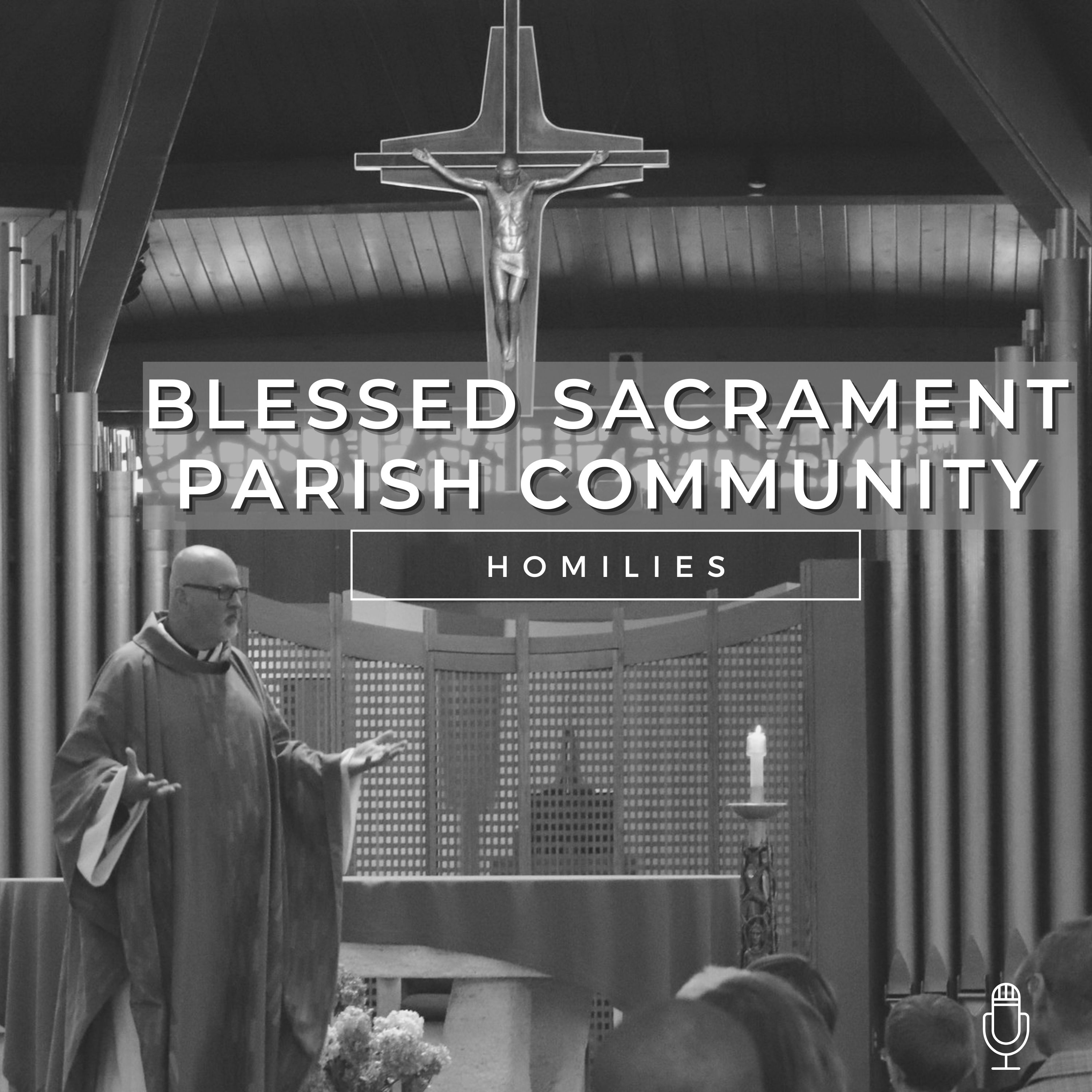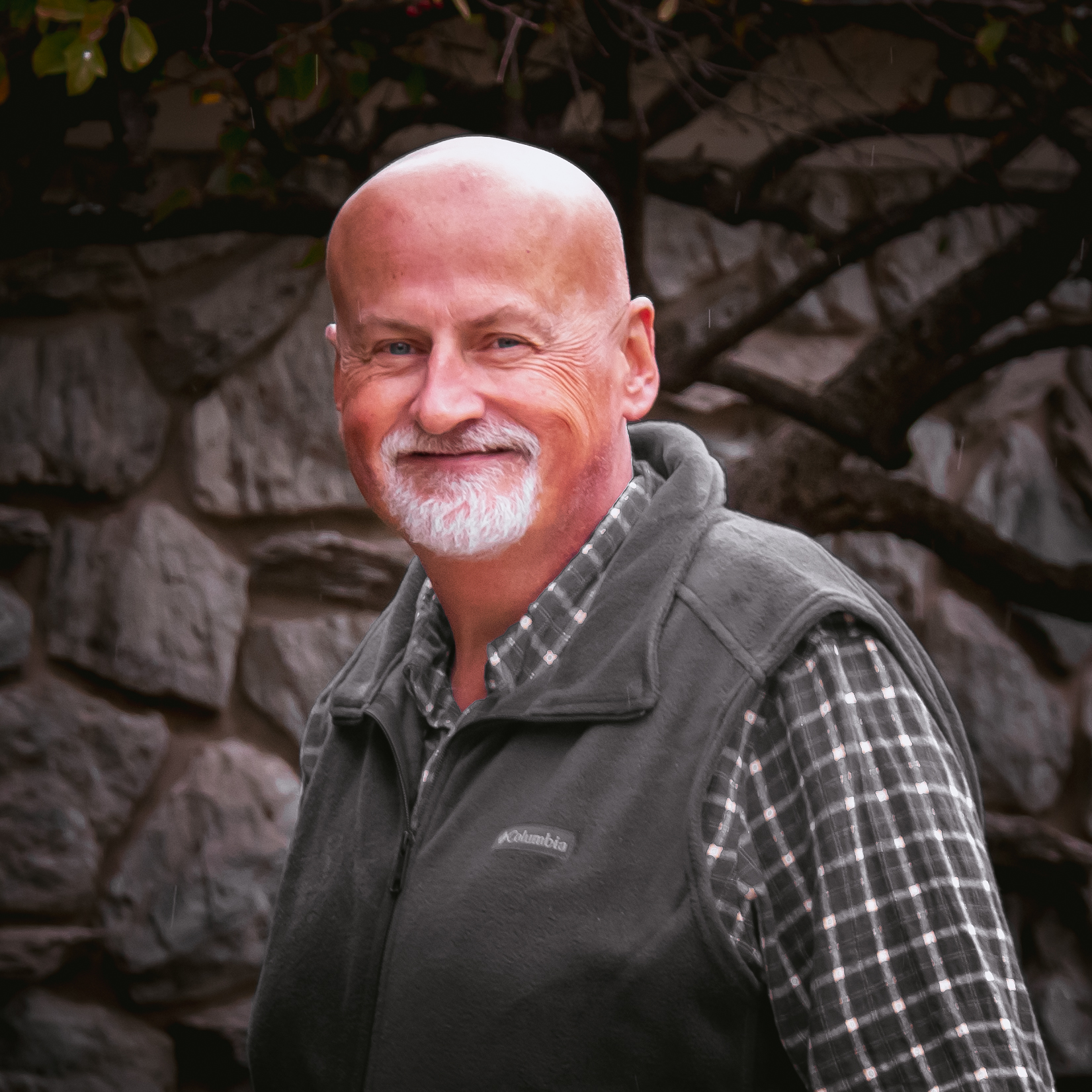Episode Transcript
[00:00:12] Speaker A: Welcome to the Blessed Sacrament Homilies podcast where our mission is to help everyone recognize and experience the presence of God. We hope you are nourished and encouraged by the word. Thank you for joining us.
[00:00:25] Speaker B: The Lord be with you and with your spirit. A reading for the holy gospel according to Mark. Glory to you.
Jesus and his disciples set out for the villages of Caesarea Philippi.
Along the way he asked his disciples, who do people say that I am?
They said in reply, John the Baptist, others, Elijah, still others, one of the prophets.
And he asked them, but who do you say that I am?
Peter said to him in reply, you are the Christ.
Then he warned them not to tell anyone about him.
He began to teach them that the son of man must suffer greatly and be rejected by the elders, the chief priests and the scribes, and be killed and rise. After three days he spoke this openly. Then Peter took him aside and began to rebuke him.
At this he turned around and looking at his disciples, rebuked Peter and said, get behind me, Satan. You are thinking not as God does, but as human beings do.
He summoned the crowd with his disciples and he said to them, whoever wishes to come after me must deny himself, take up his cross and follow me. Whoever wishes to save his life will lose it. But whoever loses his life for my sake and that of the gospel will save it. The gospel of the Lord praise just want to say something before I start. To all the parents that bring young children that get a little fussy. Don't worry, we are glad you're here. Without you we are a dinosaur that's dying. So never feel bad about that. Right? Thank you.
With that being said, I want you to listen very carefully to what I'm about to say, because I do not want to be misquoted, quoted prayer that does not lead to conversion or to acting is just about, not all the way, but just about pointless.
And let me explain why.
Prayer is always meant to be a conversation with God, and for a conversation to take place, we have to keep our ears open as much as we keep our mouths open. And I think we can have a tendency to think. We need to fill all of our prayer time with words.
And I would guess more often than not, we have a tendency to put God to sleep.
We need to listen. And when we listen, that is when we have an opportunity for God to change our hearts a little bit at a time so that we become day to day, hopefully a little bit closer to the disciples we're called upon to be.
And as disciples, it is more than listening, it's more than praying, it's more than studying, it's action. St. James says that pretty well to us, that our faith is meant to call us to action, to works, to being Christ's presence in the world.
And that's what our prayer is supposed to lead us to. If all we do is come here to church, pray on Sundays, go home, say our morning and evening prayers, and that's it, our faith is fairly empty.
Everything we do, particularly what we do here as a church, is meant to give us the strength and the presence of Christ, to in turn go back out into the world and be people of mercy.
And at its heart, what mercy is is seeing suffering and alleviating it. Seeing difficulty and trying to find solutions, seeing despair and offering hope.
That's what we're called upon to do if we really are disciples.
The good news is, the more we enter into that type of prayer, the more we recognize that Christ's presence truly is one with us. And that presence can give us the ability to do things that on our own are virtually impossible.
James put it very well and quite bluntly, but always, always, our faith is meant to lead to works, to action, to compassion and mercy.


